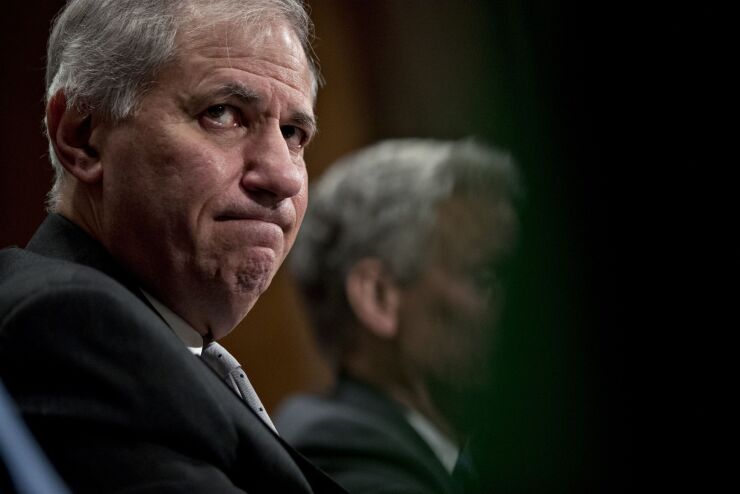Whenever I encounter a conspiracy theory related to something the government is secretly doing or has done, I tend to stop listening. That is not because I think the government is unwilling to do terrible things and keep them secret. Instead, it's because I don't think the government employs as much forethought and strategy as conspiracy theorists give them credit for. People make mistakes, and the government is run by people, so the government can make mistakes, too.
When the White House
The White House quickly assured curious reporters that the omission of an FDIC chair was not a mistake and that a nominee for chair would be forthcoming. And I have no reason to suspect that the administration won't make an announcement, if for no other reason than, at this point, it has to.

But the question remains: Did this announcement roll out according to some kind of plan, or was it a mistake? This is important, because whichever answer turns out to be correct has implications for the future of the FDIC specifically and banking policy more generally.
Here is where I engage in rank speculation — and to be absolutely clear, I have no inside knowledge from the administration to impart. But in my defense, it seems like
If the announcement went exactly the way the White House wanted it to go, then presumably Martin Gruenberg's name was not included on that list on purpose. If that's true, then it strongly suggests that someone in the administration would like to see someone else in that job, and sooner rather than later. That would make sense — Gruenberg has been at the FDIC for a long time and administrations tend to want to put their own people in charge. Perhaps the administration is just biding its time vetting alternatives, and it's also possible that in the coming weeks it announces its pick for FDIC chair and it's Gruenberg. That would be odd, but in the end it wouldn't really matter.
If administration officials made that announcement without really knowing that it would force their hand on picking a permanent FDIC chair, then it means that they listened to someone's advice that they shouldn't have. Who that was and what their motives were will remain a mystery — at least as far as this column is concerned — but it speaks to a certain lack of attention that the administration is paying to the finer points of the bank regulatory complex.

This is also turning into something of a pattern. The administration got off to a hot start by naming Janet Yellen to lead the Treasury Department, Gary Gensler to chair the Securities and Exchange Commission and Rohit Chopra to be director of the Consumer Financial Protection Bureau. But its picks for the Office of the Comptroller of the Currency and the Federal Reserve vice chair for supervision were either
After finally getting a slate of Fed nominees
What were they thinking? We may never know. But rather than playing five-dimensional chess, I suspect the administration just got played.





